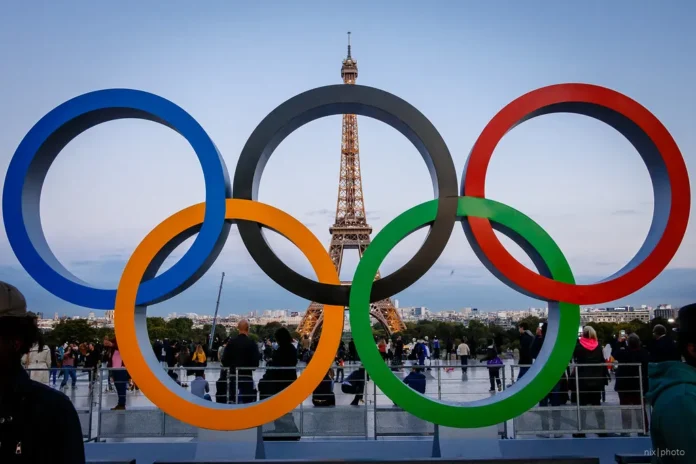Table of Contents
Introduction
The Summer Olympic Games medals represent a display of athletic excellence that brings together the best of the world’s performers in feats of strength, capability, and endurance. Throughout history, since the establishment of the Summer Games, a handful of nations have emerged as consistent contenders, well up on the medal counts for most events. In the piece, we will narrow down the top 10 nations that have bagged the most Summer Olympics medals, proving their unrivalled Olympic excellence and looking through some of the leading athletes and moments that have characterized it. No nation inspires a sense of greatness by winning more medals than any other. No nation is greater at the Summer Olympics than the United States.
No country comes anywhere near the United States in its Olympic record, whose legacy started a long, long time ago—over a century ago. American athletes never failed to perform to the best level in various sporting activities ever since the eventful beginning of the modern Summer Olympic Games medals in 1896. Jesse Owens, Carl Lewis, and Michael Phelps are the other legendary icons of the sport who have won more than a plethora of medals and broken world records, inspiring many who came after them to take on the sport.

Medal Statistics and Records of summer Olympic games medals
With over 2,500 medals won, including over 1,000 golds, the United States has sent competitors who have captured the most medals in Olympic Games history. This is an excellent count of medals that any other nation can never equal—a great tribute to the talent and sporting tradition the Americas have fostered. American athletes have dominated events like track and field, swimming, gymnastics, and basketball in the Olympics, raising the bar for others to emulate.
Soviet Union/Russia: A Tale of Two Eras
Olympic Prowess of the Soviet Union
Before the dissolution in 1991, the Soviet Union had been a strong force in the Summer Olympic Games medals throughout the Cold War. Many athletes had previously shined from the erstwhile Soviet Union in gymnastics, weightlifting, and wrestling. A rigorous training regime, complemented by state-sponsored sports programs inside the country, paid dividends as the Soviet Union nearly always topped the medal tables from the 1950s to the 1980s.

The Continued Success of Russia
With the dissolution of the Soviet Union, Russia began to emerge as an Olympic superpower. Of course, there were a few hangovers from that transitional phase in the early 1990s, but Russian athletes took little time to get back to their elements in gymnastics, athletics, and wrestling. Notwithstanding political and doping rows, Russia has remained one of the strong contenders at the Summer Olympics, regularly finishing among the top in the medal count.
Germany: Consistency personified
East and West Germany
The division of Germany following the Second World War saw the establishment of two different Olympic teams: East Germany (GDR) and West Germany (FRG). Both teams were mighty in their own right. East Germany did quite well throughout the 1970s and 1980s because of a state-supported sports program that turned out world-class athletes, especially in swimming and athletics events. West Germany had much success, mostly in such events as equestrian and rowing.

Unified Germany:
Since reunification in 1990, Germany has been one of the most consistent performers at the Summer Olympic games medals. This means that the United German team picked up where the two teams, GDR and FRG, left off and has performed very well in various disciplines. German athletes hold an impressive streak in such events as rowing, equestrian events, and track and field, which adds to an ever-growing medal count in every Olympic Games.
Great Britain: Rise to New Heights
Early Olympic Success
The history of Great Britain’s participation in the Summer Olympic games medals is long, with the unique distinction of being one of the very few countries to have appeared in all modern Games editions. The British were supreme in most athletics, cycling, and sculling events during the early years of their Olympic history. Some legendary Olympians who started it all for the nation were Harold Abrahams and Eric Liddell, whose performances engraved their names in history.

Modern Era Success
It was not until the turn of the 21st century that British Olympic athletes would have their fortunes reversed, with the crowning glory coming at the London 2012 Games. It was at this event that Team GB really made a statement by winning a variety of medals in many diverse events. Among these athletes were Mo Farah, Jessica Ennis-Hill, and Bradley Wiggins, some of the world-class competitors who heaved Great Britain onto the Olympic world stage.
France: A Serious Challenger
Historical Success
The history of the Summer Olympic games medals in France is colourful, with its athletes excelling across a wide range of sports disciplines. Indeed, early successes in sports like fencing, cycling, and athletics set the foundation for the Olympic legacy in France. Athletes from this country have always featured among the top performers to see an accumulation of medals over time.

Recent Performances
French athletes have continued to hold centre stage on the Olympic platform, particularly in judo, handball, and swimming, over the years. Superlative performers like Teddy Riner and Laure Manaudou have turned into beacons of French excellence, guiding an entirely new generation of athletes who eye Olympic greatness. France has invested much in talent development work across a wide array of sports, thereby consolidating a strong position as a contender during the Summer Games.
Italy: Tradition of Excellence
Early Successes
Its participating history at the Summer Olympic games medals dates back to the early years of the 20th century, and it has fielded competitors in events as diverse as cycling, fencing, and athletics. From such early Olympic champions as cyclist Gino Bartali and fencer Nedo Nadi, the country developed its long-lasting Olympic tradition.

Modern Achievements
Contemporary Italy has also fared exceedingly well in the Summer Olympics, notably in events like fencing, swimming, and gymnastics. The athletes of that nation have always performed excellently to add to Italy’s medal count. Some of the recent remarkable performances that have furthered this Italian tradition of Olympic excellence include swimmer Federica Pellegrini and gymnast Vanessa Ferrari.
China: A Rapid Ascent
Early Olympic Participation
China’s journey to the Summer Olympics began in the early part of the 20th century, though Chinese athletes started producing some remarkable results only in the 1980s. Its early participation was troublesome and faced many challenges in the form of limited resources and international isolation. However, its eagerness to excel on the global front never faded.

Recent Dominance
Since the turn of the century, China has risen really fast to join the list of top nations in the Summer Olympic Games medals. Inbreeding sports infrastructure and athletes has paid off, and its athletes performed to great effect in sports like gymnastics, diving, and weightlifting. The Beijing 2008 Olympics was the first time it topped the medal table, evidence of its growing mastery.
Australia: Punching Above Its Weight
Consistent Performances
Australia’s record at the Summer Olympics is quite impressive, considering its relatively small population. The nation’s athletes have shone in areas such as swimming, athletics, and cycling. Such success can be attributed to its strong sporting culture and emphasis on nurturing persons with talent from an early age.

Notable Athletes
It has also produced a great number of Olympic champions, like Ian Thorpe and Dawn Fraser, who have nearly attained iconic status in the country. Athletes like these, along with numerous others in rowing and track cycling, have ensured that Australia is always very successful at the Olympics and placed high up the medals table.
Sweden: Historical Giants
Early 20th Century Success
In the early part of the 20th century itself, Sweden emerged as a strong contender to definitely top the list at the 1912 Stockholm Games as the host nation. Swedish individual athletes did quite well in wrestling, athletics, and shooting, with a large intake of medals. The best performance by Sweden was therefore during this time of the Olympics, when it built the foundation for the country to be one of the tough contenders.

Continuous Participation
Although Sweden’s domination of the Games has faded over the last few decades, it still plays an active part in attending and sending competitors to the Summer Olympics. Swedish success continued with a core group of sports, including equestrian, sailing, and athletic disciplines that have helped to ensure that the country still picks up at least a few medals at each of the games.
Japan: Home-Grown Success
Early Olympic History
Olympic history in Japan began early in the 20th century, and the first time the Japanese took part in the Olympics was during the 1912 Stockholm Games. The success of Japan at that time was quite modest, but little by little, its athletes improved in the sports that brought the most fame to this country: judo and gymnastics.

Recent Performances
The Tokyo 2020 Olympics were historic in every sense for Japan, be it as a host nation or in terms of its performance. Japanese athletes glittered across a wide array of sports, from wrestling and skateboarding to athletics. This obviously helped with home-ground advantage, but a strong sports development program also contributed to Japan harvesting its highest medals ever, continuing to reestablish the nation’s increased clout at the Summer Olympics.
More about the Summer Olympic Games
This year, the Summer Olympic Games are held in Paris. The countries participating in the Summer Olympic Games are from all over the world. This time, there were 37 Athletes from 15 countries.In total, according to the press, there are 10,500 athletes. The Summer Olympic Games medals will be streamed on Jio Cinema, which is streaming free, and on the Sports 18 network in multiple languages. The Summer Olympic Games medals will run from July 26 to August 11.


